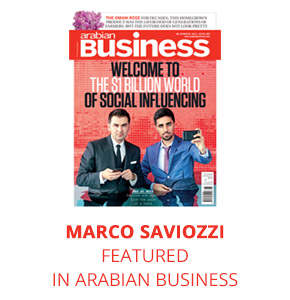As brokers, we’re always encountering the word ‘big’. We do trades for big clients; we’re thinking about our next big break; and we want to earn big bucks.
But is big always better? As a new broker it can be tempting to target working for the biggest, most well-known firms, as if their greater size and visibility will somehow increase your own.
It could do the opposite.
It’s true that not many SMEs are on the list of best places to work in the UAE: just two firms with fewer than 60 employees make the cut according to greatplacetowork.com. Still, SMEs make up a huge proportion of the UAE workforce – around 94% – and they’re a more important part of the economy here than in most countries around the world. Not to mention that, statistically, you’re more likely to land a job with a smaller firm.
So, before you start concentrating on larger brokerage firms, let’s look at the evidence. Because boutique brokerages may not always match the perks associated with big companies, but they could offer you something even more valuable, at a critical point in your career.
Boutique brokerages may not always match the perks associated with big companies, but they could offer you something even more valuable, at a critical point in your career.
Here’s why small really can be beautiful.
Focusing on what you want
To attain a position at the best possible firm, you need a solid grasp of what you’re setting out to achieve. If you’re looking for prestige and brand recognition there’s little doubt that landing a role with one of the large global institutional brokers, most of whom have offices in Dubai, will achieve that. Or, talking of brand recognition, HSBC Middle East Securities is listed on both the ADF and the DFM and there can be few places in the world that won’t recognise the name.
But is it about name-dropping, or making a name for yourself?
If you’re not concerned with the name above the door, another temptation may be company perks. Larger companies are more likely to have the resources to provide healthcare, expenses accounts and fuel allowances among other benefits. But while perks can be attractive in the short term, according to an article in Forbes magazine last year they don’t usually make or break the decision to stay and deliver great work in the longer term.
Of course benefits will always be attractive – a recent report by Fractl placed healthcare squarely at the top of the list. But attractive is not the same as important, and a Gallup poll last year found that among millennials- who make up an increasing portion of the workforce – 87% believe development is important in their job.
Perks vs opportunities
With a large firm you may find development opportunities such as training courses and workshops form part of your employment package. What you might not find is the opportunity to develop on the job, through rolling up your sleeves and getting stuck in. That’s much more likely to happen in a smaller company where the input of every person matters.

This year, the US medical insurer Aflac surveyed 1,000 employees of small businesses in the USA. The top drivers of employee happiness were flexible scheduling (at 27%) and seeing the fruits of their labour (at 23%). But look at the others on the list, and the reasons for choosing a smaller company start to become clear. Employees of small companies feel like their input makes a difference, that they are being rewarded for hard work, being noticed by people who matter, and are broadening their skill set. And more than two-thirds of the employees surveyed said that feeling more appreciated was a benefit of working for a small company versus a large one.
That’s not to say smaller employers don’t offer good benefits packages. The same survey found that they do. But it also noted that ‘small businesses offer unique intangible benefits that employees know they can’t find in any other workplace’. Working in a smaller business can make it easier to be noticed – to be seen doing a great job and making a difference.
Small businesses offer unique intangible benefits that employees know they can’t find in any other workplace.
Being noticed is important
As a broker, your reputation is the cornerstone of your career. We’ve all heard the famous quote that it takes 20 years to build a reputation and five minutes to ruin it, but to get a reputation in the first place you need the opportunity to build it. That means learning on the job, developing and demonstrating your abilities. Only then can you show your value, both to your employers and to your clients. That’s what I mean by opportunities rather than perks. Perks add value to your remuneration package; opportunities add value to you.
With a smaller firm you’re more likely to be noticed simply because there are fewer other employees around you. On the one hand, of course, if you mess up there’s nowhere to hide. But if you’ve applied yourself diligently you’ll be able to show your worth. In a startup you can get right in on the ground floor and move rapidly up the ranks as the company progresses. Even if you decide to change jobs eventually, a resume showing involvement in a startup that went on to succeed is as valuable an attribute as a big name. Or perhaps more – earned glory shines brighter than reflected glory.
The psychology of appreciation
Along with greater opportunities to do work that gets you noticed, a smaller, tighter team means you’re more likely to be on the receiving end of appreciation when you do well. An experiment carried out by the University of Pennsylvania divided fundraisers into two groups, then asked both groups to chase alumni donations. One group received a pre-emptive talk from the director of annual giving, who quite simply expressed her gratitude to them. The other group didn’t receive the talk. Over the following week the group that received the ‘pre-emptive thank you’ made 50% more calls than the group that didn’t.

Being appreciated at work is more than a pat on the head – it makes you more engaged and more focused. That’s good for your employer, but it’s good for you as well.
In at the deep end
While you’re working hard, staying engaged and being noticed for doing so, working with a smaller brokerage will also give you the opportunity to build up your entrepreneurial skills.
‘Entrepreneur’ is a term that’s misunderstood, often simply used to describe someone starting a business. That’s the wrong way round. Yes, starting a business may be the result of someone possessing an entrepreneurial skillset, but being an entrepreneur also involves time management, organisation, leadership and teamwork skills.
These are abilities that feature highly among the best brokers, especially in a small firm where you need to thrive on your own terms, make considered decisions and use your time well. We spend much of our day following the markets, keeping up with the news and looking to understand the psychology that underpins our profession. Being thrown in at the deep end forces you to become proactive and decisive – essential skills when you later have to take responsibility for big decisions dealing with clients’ money.
Big companies can be too big
As the FT noted in an article in 2015, larger organisations can become too large to manage effectively. At the extreme, businesses can lose control of their decision making, resulting in bad strategic choices, failed acquisitions, regulatory action and fines. Major players in the banking industry have been repeatedly fined over the last decade – in the UK the bill comes to GBP 53bn. When cost pressures mount, it’s easier to let go of employees who have had little opportunity to prove themselves, who are little more than numbers in a spreadsheet.
As the FT noted in an article in 2015, larger organisations can become too large to manage effectively.
Indeed some large companies are trying to restructure their decision-making processes, to ape those of smaller businesses. Amazon CEO Jeff Bezos introduced a ‘two-pizza teams’ initiative, aiming for the principle that all decisions should be capable of being made by groups that could be fed with two pizzas. It was a noble thought, but in a firm of Amazon’s size, it wasn’t altogether successful. The reality is that large companies are like oil tankers, with responsiveness to match. Whereas a small boutique is more like a nimble sailing boat – light, controllable and able to navigate the changing seas with great agility.
Is going small the biggest opportunity out there?
It’s up to you to decide what you want from your career as a broker. For some, a good salary and benefits package will be enough, but in our profession it’s good to examine everything twice before pulling the trigger. There’s nothing wrong with ‘big’, if it’s applied to the right things. A big salary won’t hurt and a big name can sound impressive, but what about the big picture?
When you’re just starting out, you’re on a path of learning and development. That path can be as long, short, smooth or bumpy as you want it to be. Many a perfectly good career will be played out within the machinery of large, established firms. But a few, glittering careers will be forged in the fires of experience, working both hard and smart. Those brokers will build resilience, determination, respect and cast-iron reputations.
They’ll be the big players of tomorrow.
About the author: Marco Saviozzi, CEO
Marco attained an MBA in Finance from the IEMI, Geneve, before starting his career in corporate sales at Xerox. He would eventually move on to French firm Viel (now Tradition), before being headhunted by prestigious London firm ICAP, where he was brought in as head of the French Franc IRS Desk. He quickly rose to become a part of the management committee as Co-Head of the Euro Desk, and later moved to the New York office to head up the Equity Derivatives team. After 14 years at ICAP, in 2007, he opened Newedge – a Calyon / Societe Generale brokerage arm in Dubai. Two years later he would go on to form GMG as a co-founder with several past colleagues. When he is not facilitating trades on behalf of clients, Marco can be found on the golf course or watching his favourites sports – Formula 1 and horse racing.


